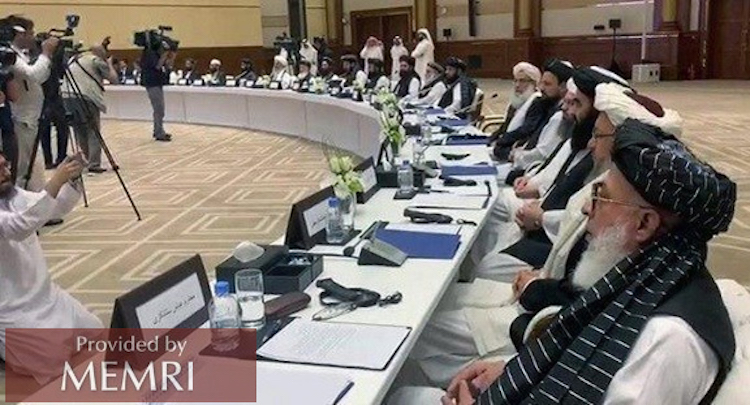Afghanistan On the Long Road to Trust and Reconciliation
By Rita Joshi
BERLIN (IDN) – As a friend to Afghanistan, Germany has supported efforts to achieve peace in the country for many years. After 40 years of almost constant violence, the main prerequisites for peace, according to the German Foreign Office, are “a willingness to engage in dialogue and a certain level of trust across deep divides.”
With the aim of building confidence between the various parties to the conflict and groups, Germany and Qatar co-hosted an intra-Afghan dialogue conference in Doha on July 7 and July 8, where over 60 Afghans met to discuss an end to the conflict and the future structure of their country.
The participants attended the conference as members of the public, and not in an official capacity. However, they represented a wide spectrum of Afghan politics, society and regions because, according to the German Foreign Office, “a lasting peace agreement in Afghanistan can only be achieved if all relevant political groups, civil society and hitherto disadvantaged sections of the population, such as women and ethnic minorities, are included and taken into account”.
The willingness of the various participants, who included members of the Taliban, the Afghan Government and civil society, to take part in this type of dialogue is considered “an encouraging sign”.
The in‑depth exchange chaired by Germany’s Berghof Foundation addressed topics such as the rights of women and minorities, the prospects for a ceasefire, the withdrawal of foreign troops and the political future of the country as a whole.
There was consensus among the participants on various issues, including the need for measures to curb violence against civilians and to reduce the number of civilian casualties. Furthermore, in their joint declaration at the end of the event, the participants expressed their support for the ongoing peace talks between the United States and the Taliban which were continued on July 9.
“This start of an inclusive dialogue between Afghans on the prospects for lasting peace in their country means that an important first step has been taken. It is now important to continue this dialogue and to actually put what has been agreed into practice,” said the German Foreign Office.
In addition, direct talks will be needed between the Afghan Government and representatives of the Taliban, it added. So far, the Taliban has refused to enter into such talks. Moreover, guarantees are needed to ensure that major achievements of the past years, for instance in the field of protecting human rights, setting up democratic institutions and providing equal access to education, do not fall by the wayside.
The European Union (EU) praised in a statement the success of the Intra-Afghan Dialogue in Doha, saying it “marks an important step towards achieving the peace the people of Afghanistan deserve and have long demanded”.
The statement reads: “The European Union will continue to concretely support, politically and financially, an Afghan-led and Afghan-owned peace process that preserves and builds on the political, economic and social achievements of the people of Afghanistan since 2001.”
To this aim, the EU is working with the Afghan Government and all other interlocutors to ensure that peace negotiations are inclusive and respectful of the wish of Afghans to live in a peaceful, secure and prosperous country, where rights are upheld and vulnerable groups protected, the statement reads further.
In a statement issued by Qatar, Dr. Mutlaq bin Majid Al-Qahtani, the Qatari Special Envoy for Counterterrorism and Mediation in Conflict Resolution, announced the “success” of the talks, stating: “We are very pleased today to reach a joint statement as a first step to peace.”
Tufail Ahmad, a fellow at the Middle East Media Research Institute (MEMRI), however is of the view that the “success” and the “first step to peace” which Al-Qahtani spoke of belong to the Taliban and shari’a, not to the democratic government in Kabul, not to Afghan women who suffered under the Taliban’s shari’a rule during the 1990s, and not to common Afghans whose civil liberties are at stake in Doha.
He adds: “The Afghan Taliban – as a result of the Doha talks – marched closer to their stated objectives of enforcing Islamic shari’a rule in Afghanistan and of restructuring the Afghan government institutions, including the military, to their liking.” [IDN-InDepthNews – 14 July 2019]
Photo: The July 7-8 talks between the Taliban and Afghan delegates in Doha. Credit: MEMRI
IDN is flagship agency of the International Press Syndicate.
facebook.com/IDN.GoingDeeper – twitter.com/InDepthNews
Send your comment:comment@indepthnews.colo.ba.be
Subscribe to IDN Newsletter: newsletter@indepthnews.colo.ba.be

